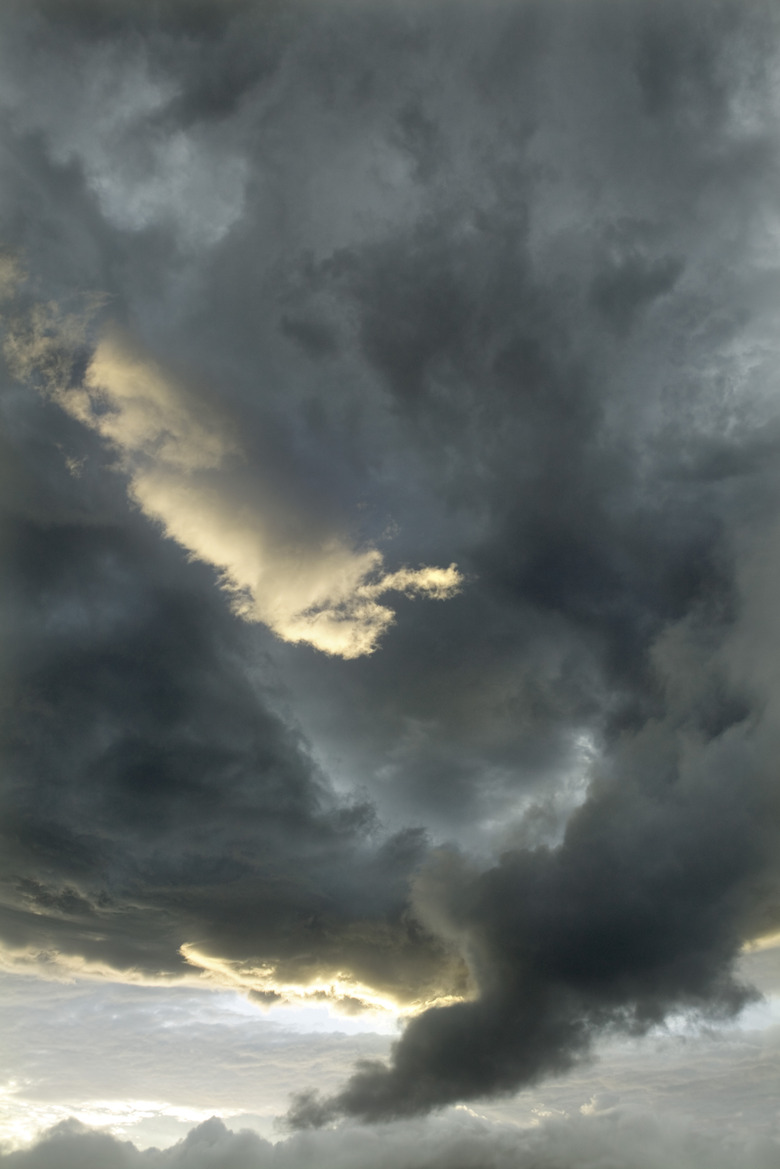What Are The Four Types Of Air Mass?
It's not abstract art; it's a weather map. Some weather maps have colorful blobs that give information about conditions in the air. When a large section of air has consistent temperature and humidity throughout, it's an air mass.
Meteorologists classify air masses by one of four "source regions" or locations of origin. These 4 types of air masses form over particular regions. These regions are usually large and flat with consistent formations, such as oceans or deserts.
Air Mass Definition
Air Mass Definition
The air mass definition can be deduced logically from the name: it's a large mass of air. Specifically, it is a large area of air that has taken on the characteristics, temperature and moisture levels from the land and/or water that is below it. The size of air masses are hundreds to thousands of miles across. The humidity, temperature and other characteristics are uniform throughout the air mass.
The boundaries between air masses are called fronts.
4 Types of Air Masses
4 Types of Air Masses
Generally, there are four types of air masses that can be further categorized with specifics of where they occur and over water or land. The 4 types of air masses are polar, tropical, continental and maritime. Their classification depends on their location where they are formed.
Type 1: The Coldest of All
Type 1: The Coldest of All
Air masses at the Polar Regions form between 60 degrees latitude and the North or South Pole. Northern Canada and Siberia are common sources of these cold, dry masses, although they can also form over water.
Because they are extremely dry, polar masses have few clouds. Meteorologists use a capital P to refer to these masses. Some resources differentiate between polar air masses and extremely cold ones that form very close to the poles. Arctic masses are abbreviated with an "A," while Antarctic masses use "AA."
Type 2: Warming Up
Type 2: Warming Up
Tropical air masses form within 25 degrees latitude of the equator. This means that the temperature will be warm or even hot. These masses, abbreviated with a "T," can develop over land or water. Source regions include the Gulf of Mexico, southwestern United States and northern Mexico. As the air from these air masses moves over the land of the US, they will rapidly cool and usually result in precipitation and storms.
Type 3: Land Ho!
Type 3: Land Ho!
Continental air masses develop between 25 and 60 degrees latitude, either north or south of the equator. As indicated by their name, they form over large land areas, so they're dry. Since meteorologists consider this a secondary classification, it's represented by a lower case "c." When describing an air mass, meteorologists indicate both the humidity and temperature, in that order.
For example, an air mass that originates over northern land is labeled "cP" for continental and polar regions. This air is dry and cold. A very dry and hot air mass that forms around the U.S. and Mexican border is labeled "cT" — continental and tropical.
This usually does not include air masses that form over mountainous regions.
Type 4: Water, Water Everywhere
Type 4: Water, Water Everywhere
Air masses with high humidity form over oceans. This "maritime" classification corresponds to the same latitudes as continental masses. It is also considered a secondary category and is abbreviated "m." Therefore, a humid, cold mass that develops over polar oceans is categorized as "mP."
This type of air mass impacts the U.S. west coast in winter. Humid and warm air masses often come from the Gulf of Mexico and southern Atlantic Ocean and are labeled "mT." These have a strong effect on weather in the American southwest.
Cite This Article
MLA
Sherwood, Susan. "What Are The Four Types Of Air Mass?" sciencing.com, https://www.sciencing.com/four-types-air-mass-11902/. 19 June 2019.
APA
Sherwood, Susan. (2019, June 19). What Are The Four Types Of Air Mass?. sciencing.com. Retrieved from https://www.sciencing.com/four-types-air-mass-11902/
Chicago
Sherwood, Susan. What Are The Four Types Of Air Mass? last modified March 24, 2022. https://www.sciencing.com/four-types-air-mass-11902/
